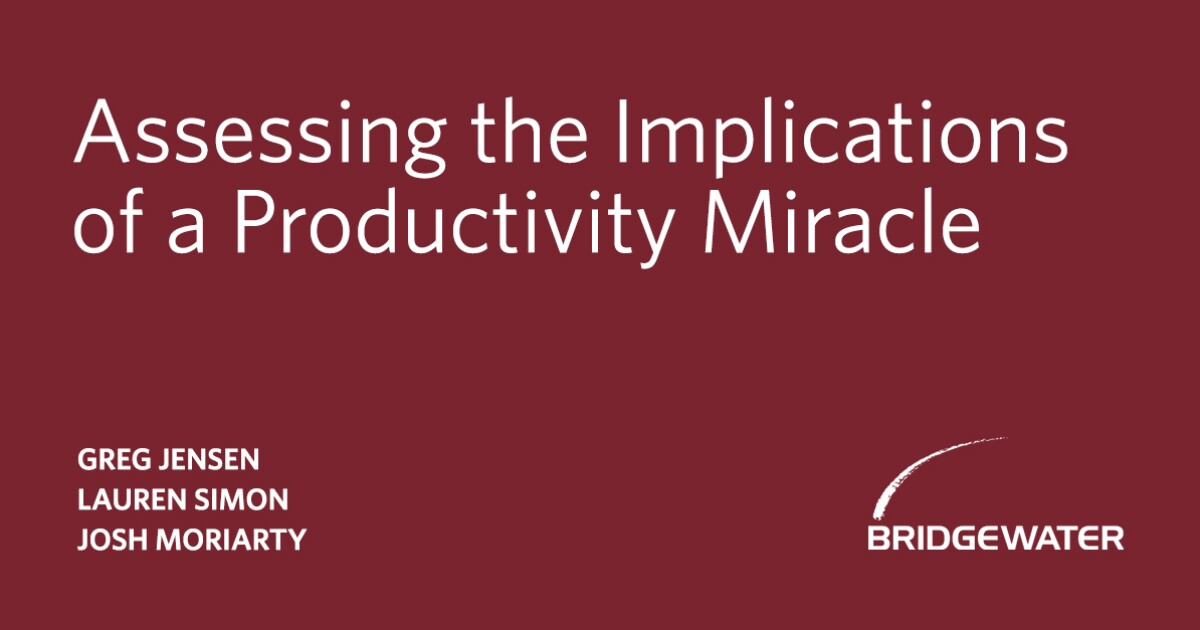I say this to everyone who will listen. The danger from AI is not a Terminator situation. It’s economists, billionaires, and c-suite execs who don’t know shit about fuck, that will push to replace their workforce with AI. In the short term it’ll even work too for a lot of companies, which is the sad part.
As OP said though, long term it’s a recipe for failure. If nobody is working then nobody is getting paid and therefore can’t buy anything. The billionaire class, however, won’t admit that they’ve fucked themselves until mobs start showing up to strip their houses of copper wire and valuables. We’ll be neck deep in civilization collapse at that point.
Bridgewater is not just the US’s biggest hedge fund, it’s the world’s. As such, its research is indicative of mainstream economic thinking. That makes reading through their thoughts on AI & robots replacing human workers scary. Our governments and societies are guided by economist’s planning. If this level of cluelessness is mainstream economic thinking, we’re in big trouble.
The TLDR is that replacing all human workers will be great for investors and profits, and lead to economic boom times, as things getting cheaper will increase demand. No Nobel Prize in Economics for spotting the flaw with this line of thought. If no one has jobs, how do they buy stuff?
Jeremy Rifkin’s book ‘Zero Marginal Cost Society’ is a far more economically literate take on the effects of AI & robotics reducing the cost of production to near zero.
Humans don’t provide value by being a sink for economic activity. The fact that humans have certain needs and wants currently directs the economy, but if productivity can be decoupled from satisfying those needs and wants then there’s no remaining role for humans as consumers who don’t produce.
Businesses specialized in satisfying human needs and wants won’t do very well, but they won’t be the whole economy and eventually they won’t be a significant part of the economy at all. Robots making robots that make robots is a steady state…
Robots replacing the majority of human labour doesn’t seem like an inherently bad idea, and it could ultimately result in a stable Star Trek style post-scarcity economy. The challenge will be getting to that state with as little economic and societal collapse as possible. What tools can we to implement now to increase our chances of a smooth transition? Would establishing UBI be beneficial?
“people who want $1000 a month UBI don’t seem to realize their rent will go up $1000 next month.” Decommodification. We are post-scarcity in many areas, but are still getting charged for it because of commodity and profit-motive.



